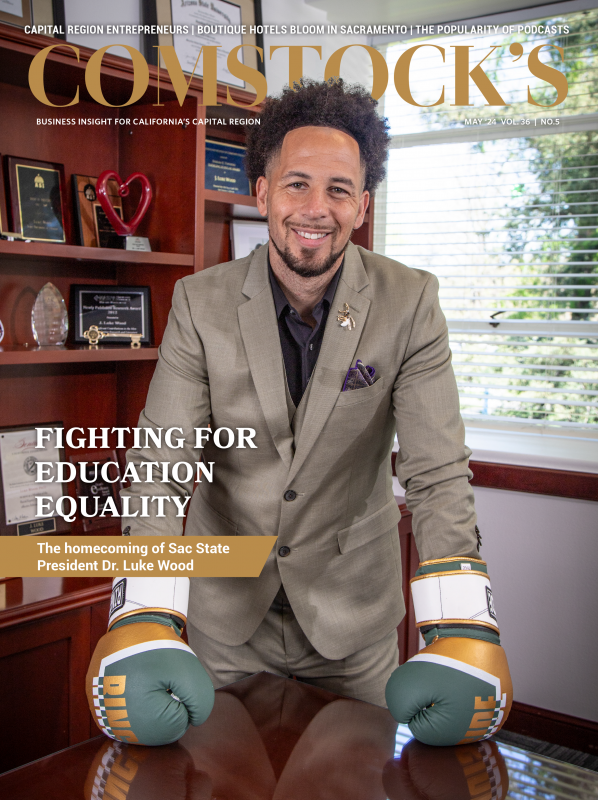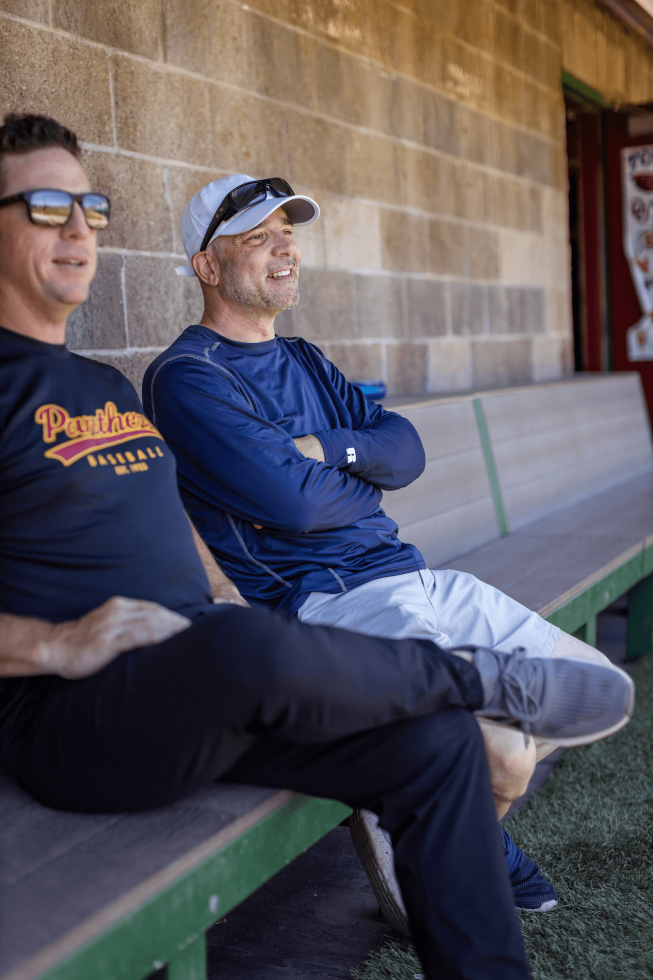Joe Davidson started writing sports for The Sacramento Bee in 1988. He hasn’t looked for another job since. “I’m doing exactly what I want to do,” says Davidson. “I love it.”
And he especially loves covering high school football. He loves talking to the coaches, the players, the school administrators — he loves it even more than being the Kings’ beat writer, which he did back in the Chris Webber era. A big part of the appeal: He knows how much the stories can mean to the student players. “If someone says, ‘I couldn’t have done this without my offensive line,’ I want the names of all offensive linemen in there,” says Davidson, who is ofter referred to as Joe D. “Those could be clips that these people keep for the rest of their life.” (It’s no surprise that Davidson has won 14 awards from the California Prep Sports Writer Association.)
His days are wildly different, depending on the sport and the season. So we’ll unpack his favorite and his busiest: Fridays covering high school football.
On keeping perspective: “People read it, people appreciate it. And it’s our duty to cover this area. So I enjoy the responsibility.”
How he takes notes: “I’m an old school guy. I carry a clipboard with a piece of paper on it.” And he always carries three pens and two pencils because you never know.
8:00AM or even 9:00AM – Sleeps in, as he knows it will be a loooong day. Chows down a bowl of Wheaties.
9:00AM – Takes a walk or drives around the neighborhood with his windows rolled down, just to get some fresh air.
10:00AM – Settles into his home office. Responds to email and social media messages. He makes it a point to reply to every single message from readers, “even the snarky ones.”
10:30AM - Shares social media posts and links previewing The Bee’s key weekend games and stories.
11:00AM – Davidson isn’t just a reporter; he now oversees The Bee’s local sports coverage. He picks the games, decides the features, selects the photos. So he’ll call staff writers, stringers or interns to flesh out the night’s possible storylines. He’ll coach: “Let’s featurize. Let’s not make it a rehash of the scoring summary. Who are these people? Scene set.”
12:00PM – Coordinates the photographers’ assignments for tonight’s high school games and tomorrow for either Sac State or UC Davis. “There’s always a Saturday game to cover. Those are a blast.”
1:00PM – Creates “story slugs” for the night’s high school games — file folders in the system where photogs can drop their photos. Davidson used to have an intern to help with this kind of work, but cutbacks mean he does it himself, and he enjoys it. “It’s tedious, but it’s not hard. It’s something you have to do.”
2:00PM – Today’s only window for downtime. Grabs a sandwich and maybe reads a book (often biographies and history) or watches TV. He loves playing chess, sometimes on his phone and sometimes with his 25-year-old son, Cameron. Voraciously consumes news, from politics to culture to sports — both out of genuine curiosity and to inform his own craft.
4:00PM – Heads to the high school stadium extra early, both to beat traffic and get a jump on the coverage. Usually arrives so early that he’ll swing by a pizza place and grab a bite.
5:30PM – Arrives at the press box. Chats with coaches, athletic directors and high school administrators to get the game’s wider context. Asks questions like, “Hey, what’s going on on-campus? How’s the enrollment? Any issues? How’s fundraising?” Most people know him. “If I just went to a game in LA and nobody knew me, it wouldn’t be the same. You’re just some outsider.”
6:30PM – He’s on field during warm ups, taking notes. He’s also at midfield for the coin flip; he’ll post that to social media.
7:00PM – Kickoff. Throughout the game he’s jotting notes and updating Twitter.
9:45PM – The game ends. Davidson hustles down to the field to get some quick quotes, then hoofs it back to his laptop and knocks out his story.
11:00PM – Files the copy by 10:30 p.m. or 11 p.m. at the latest, even though it’s not due until hours later. “I want to file it while it’s in my brain.”
11:05PM – While waiting for traffic to file out of the stadium, he manually updates The Bee’s scoreboard — typing in the scores of 60+ high school games.
11:30PM – Heads home, then goes straight to the office. Edits the other two or three stories his reporters have filed.
2AM - Finally finishes his work. Before he falls asleep his mind races to tomorrow, where he’ll be covering a game for either Sac State or UC Davis. “That workload is much shorter; we’re just doing one story.” When reminded that tomorrow is a Saturday and normally an off day for most people, he laughs. “It’s tiring, it’s a lot, but it’s rewarding.”
–
Stay up to date on business in the Capital Region: Subscribe to the Comstock’s newsletter today.
Recommended For You
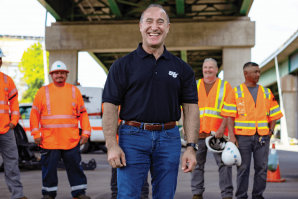
The Way We Work: Tony Tavares
A glimpse into the daily life of the director of Caltrans
His trick for listening to all those voices? He starts every day in the middle of the night.
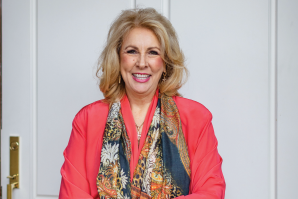
The Way We Work: Kim Pacini-Hauch
A glimpse into the daily life of Sacramento’s top Realtor
Pacini-Hauch’s secret? “I answer the phone,” she says, adding that clients are routinely surprised that she always picks up or calls them back immediately, no matter when.

The Way We Work: Mercy Hospital President and CEO Lisa Hausmann
A glimpse into the daily life of a Dignity Health hospital executive
The roughly 900-employee, 106-bed hospital has gotten really good thanks in large part to Hausmann’s tireless work ethic, something she calls the “protected hour,” and a box of cookies.
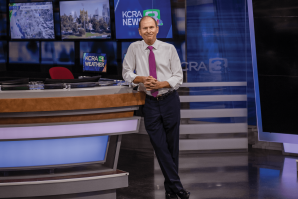
The Way We Work: KCRA Chief Meteorologist Mark Finan
A glimpse into his daily life of monitoring the weather for the Capital Region
Will it rain this weekend? For over 30 years, the man Sacramento trusts for that answer is Mark Finan, chief meteorologist at KCRA.
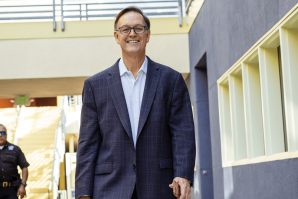
The Way We Work: Jessup University President Dr. John Jackson
A glimpse into the daily life of the pastor and Christian university leader
Dr. John Jackson grew up as a pastor’s kid, but he didn’t see that as his calling. “I told God in my own way, ‘I’ll do anything you want, except I’ll never be a missionary, and I’ll never be a pastor,’” says Jackson. So of course he became a pastor.




